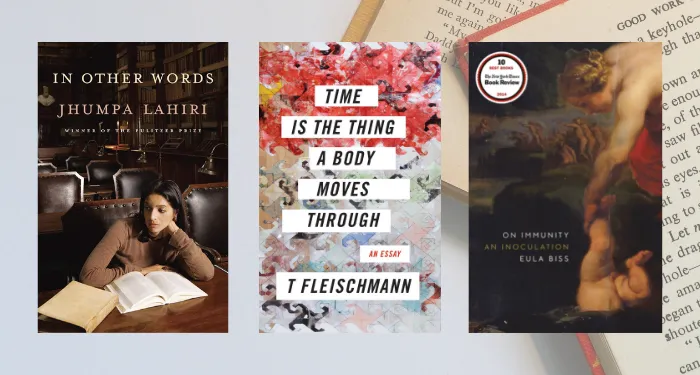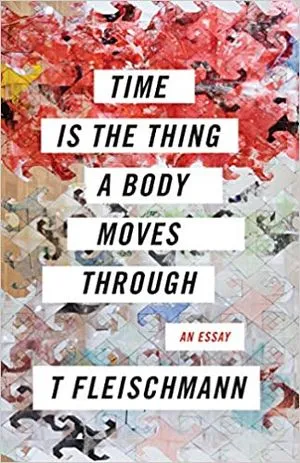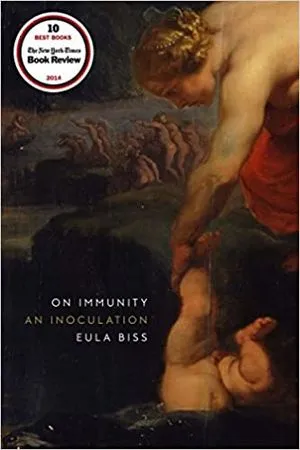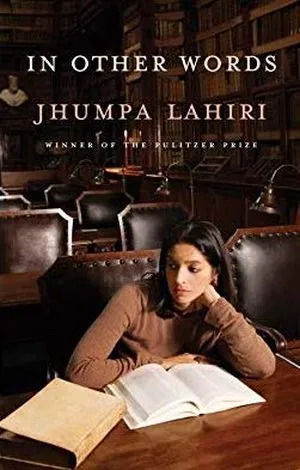
An Introduction to the Book-Length Essay
You might be wondering, “I didn’t think there was such a thing as the book-length essay! Aren’t essays short pieces, like the kind you wrote in school, or the kind they collect in the Best American Essays series? Aren’t they the nonfiction equivalent of the short story?” The answer is yes, and, of course, no. We do usually think of essays as short pieces that we read in magazines or online and that get gathered together into collections. But the essay as a genre is more expansive than that, and the book-length essay is, indeed, a thing that exists and that is a pleasure to read.
What Is a Book-Length Essay?
It’s easy to say that a book-length essay is simply an essay that goes on for a long time, enough to fit the usual length requirements of a standalone book. What is more complicated is distinguishing the book-length essay from other forms of nonfiction. The question becomes how this form is different from, say, memoir, biography, criticism, history, political science, or sociology.
The essay can incorporate some or all of these genres and more, but it is in itself fundamentally different. Essays, no matter their length, explore ideas, facts, and experiences, with an emphasis on explore. They are not definitive: they aren’t researched journalism or academic scholarship complete with explanatory footnotes. Instead, they attempt to look at problems, address questions, or analyze experiences. Emphasis on attempt!
Essayists write in order to discover what they think. An essay is then a record of a thought process. Part of the pleasure of reading them comes from following the writer’s thinking as it develops: we get to see the twists and turns of the writer’s mind as it works through a problem. Essays are looser than other genres, and weirder. They can flit from idea to idea and can incorporate literally anything. Upon first reading, they sometimes appear to be disorganized (although often an organizational system lies underneath). They can contradict themselves or show the writer changing their mind.
The essay is a genre that is weirdly anti-genre. It doesn’t want to settle down and fit in anywhere; it refuses categories and rules. I think of essays as nonfiction, but there is even room for elements of fiction.
Book-length essays are the kind of books that make bookstore owners puzzle over where to shelve them, unless they have a section called “Literary Nonfiction” or similar. Sure, these books could go in the essay section, if there is one, but they could also fit in memoir, current events, cultural studies, art, music, philosophy, etc. They fit everywhere and nowhere. They are a delightfully expansive hybrid form.
Six Examples of the Book-Length Essay
Below are some examples of my favorite book-length essays. Check them out and discover some really great books and writers.

Time is the Thing the Body Moves Through by T Fleischmann
This book is personal, intellectual, challenging, and strange. It’s partly about the art of Félix González-Torres, especially a work called “Untitled” (Placebo – Landscape – for Roni) with its endless supply of candy in gold wrappers that viewers/participants can freely take. It’s also about being queer and trans, and about friendship, love, sex, and radical politics. Fleischmann interweaves narratives from different times to create a sense of movement and change; there’s a fluidity to the narrative which meanders while maintaining a sense of urgency.
The Face: A Time Code by Ruth Ozeki
This book is part of a series from Restless Books where authors write about their own faces. Ozeki decided to approach this task by spending three hours staring at her face in the mirror and writing about the experience. The three hours were, as it turns out, boring, but the resulting book is wonderful. Ozeki keeps track of the three hours minute by minute, following her thoughts as they wander throughout that time. Descriptions of her feelings about her face are the jumping off point for personal stories and thoughts.

On Immunity by Eula Biss
I wish I could make everyone read this book right now! On Immunity combines memoir, science, medicine, criticism, parenting, and cultural critique to explore what immunity means. Eula Biss examines people’s fear of vaccines and the origin and implications of that fear. She considers what our attitudes toward immunity can tell us about how we understand our selves and our place in community. It’s a short book that is wide-ranging, and, if more people read and pondered it, potentially revolutionary.
This Little Art by Kate Briggs
This Little Art is published by Fitzcarraldo Editions, which has a series of nonfiction books it simply calls “Essays.” Those who want to read more book-length essays will find that series a great resource. This volume examines the art of translation. Kate Briggs translates Roland Barthes, and she writes beautifully about her love for his work. She writes about theories of translation and the ways translation work is gendered. The book contemplates language and writing itself. It’s absorbing, thought-provoking, and gorgeously written.

In Other Words by Jhumpa Lahiri, Translated by Ann Goldstein
In Other Words explores and celebrates Jhumpa Lahiri’s love of the Italian language. This is her first book written in Italian after she moved to Italy to immerse herself in the language and culture. The book examines what it is like to learn a new language with all the accompanying frustrations and joys. Lahiri writes autobiographically, but the book expands into a meditation on language, writing, and what it’s like to think in entirely new ways.
Ongoingness: The End of a Diary by Sarah Manguso
Ongoingness takes up many subjects, including diaries, memory, parenting, and the practice of writing. Manguso kept a lengthy, detailed diary for many years, a text this book circles around but never quotes. Instead, she contemplates what the diary meant to her, why she kept it and why she stopped. She writes about the feelings of early motherhood and how her relationship to writing and memory changed. Manguso writes in short, meditative sections that are both autobiographical and philosophical.
Looking for more essays to read? Check out this list of 100 Must-Read Essay Collections. If you like genre-bending memoirs (which have a lot in common with the book-length essay), check out these recommendations.











